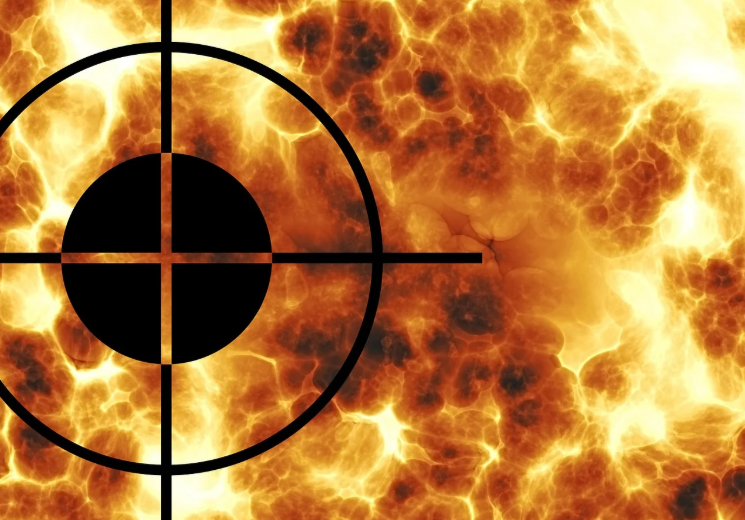Lashkar-e-Taliba (LeT): Islamist-Jihadist Pakistani militant organization
Wolfgang Witschas
Abstract
Lashkar-e-Taiba (LeT) is a Pakistan-based Islamist militant organization that’s been designated as a terrorist group by several countries, including the US, India, and the UK. Formed in 1985-1986, LeT’s primary goal is to merge Kashmir with Pakistan and establish Islamic rule in the region. LeT’s activities have strained India-Pakistan relations and contributed to regional instability.
Key Words
Lashkar-e-Taiba (LeT)
Salafi jihadi ideology
International Terrorism
Pakistan
Kashmir
India
What does Lashkar-e-Tayyiba (LeT) stand for?
Lashkar-e-Tayyiba (LeT), often translated as the Army of the Righteous, is a Pakistan-based Sunni terrorist group that seeks to establish an Islamic emirate in South Asia. Lashkar-e-Taiba (LeT), also known as Lashkar-e-Tayyiba, Lashkar-e-Toiba
LeT is a Islamist Jihadist Pakistani militant organization driven by a Salafi jihadi ideology.
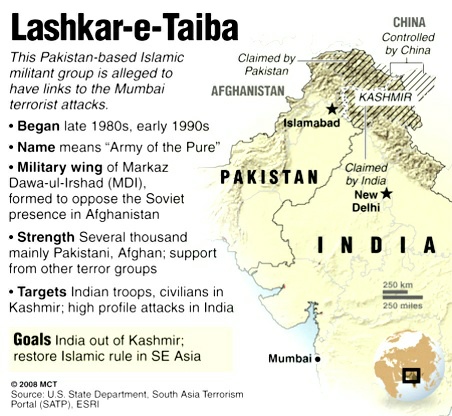
Objectives
The organisation’s primary stated objective is to merge the whole of Kashmir with Pakistan. It was founded in 1985–1986 by Hafiz Saeed, Zafar Iqbal Shehbaz,
Abdullah Azzam and several other Islamist
mujahedeen with funding from Osama bin Laden during the Soviet–Afghan War.
Since its formation in the early 1990s, LeT has focused on attacking military and civilian targets in India-administered Jammu and Kashmir, supporting Pakistan’s claims to Kashmir. In 2006 and 2008, the group conducted large-scale attacks in Mumbai, India, that together killed nearly 400 people.
It has been designated as a terrorist group/organisation by the United Nations (UN) and numerous other countries and been responsible for terrorist attacks on civilians in India, such as the 2000 Red Fort attack, 2005 Delhi bombings, 2006 Mumbai train bombings, 2008 Mumbai attacks and the April2025 Pahalgam attack.
LeT members practice Ahl-e Hadith, a form of Salafism that forbids violence against other Islamic sects; therefore, the group advocates attacks against non-Muslims. LeT and its humanitarian front organizations have been banned in Pakistan since 2019, and the group has faced pressure from the Pakistani Government to give up arms. The group is funded primarily by donors in Pakistan, charitable organizations in the Middle East, and fundraising by LeT’s own charitable arms—Jamaat-ud-Dawa and the Falah-e Insaniat Foundation.
Ideology
Follows Salafi jihadist ideology, seeking to establish Islamic rule in India and beyond.
The integration of Jammu and Kashmir with Pakistan.
• Ahl-e-Hadith
• Salafi jihadism
• Sunni Islamism
• Pan-Islamism
• Sunni–Shia unity
• Islamic fundamentalism
• Ghazwa-e-Hind
• Anti-Hindu
• Anti-Communism
• Anti-Sovietism
• Anti-Zionism
• Antisemitism
• Pakistani nationalism
Operational
Based in Pakistan, where LeT raises funds and recruits; conducts operations primarily in India-administered Kashmir. LeT had established good ties with the Pakistani Taliban but never agreed to join together as an organization.
Active regions Worldwide, predominantly in the Indian subcontinent:
• Pakistan
• India
• Afghanistan
• Australia
• United States
• Bangladesh
• Nepal
Designated as a terrorist group by
• United States (USA)
• Canada
• Australia
• India
• United Kingdom
• Russia
• Japan
• Israel
• Pakistan
• European Union (EU)
• United Nations (UN)
Responsible for terrorist attacks on civilians in India, such as the 2000 Red Fort attack, 2005 Delhi bombings, 2006 Mumbai train bombings, 2008 Mumbai attacks and the 2025 Pahalgam attack. Banned in Pakistan since 2002, but still operates.
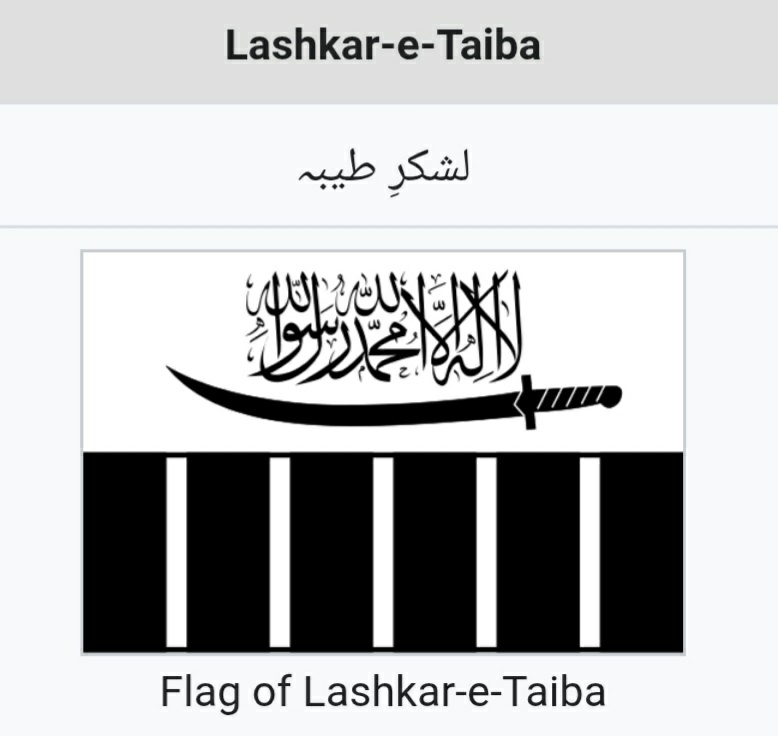
Notable attacks:
Operates in Pakistan, India, and other countries, with training camps and networks in place.
• December 2000 terrorist attack on Red Fort
• 2001 Indian Parliament attack
• 2005 Delhi bombings
• August 2007 Hyderabad bombings
• 2008 Mumbai attacks (26/11)
• 2010 Pune bombing
• 22 April 2025 Pahalgam attack
• 10 November 2025 Red Fort bombing
LeT members practice Ahl-e Hadith, a form of Salafism that forbids violence against other Islamic sects; therefore, the group advocates attacks against non-Muslims. LT and its humanitarian front organizations have been banned in Pakistan since 2019, and the group has faced pressure from the Pakistani Government to give up arms. The group is funded primarily by donors in Pakistan, charitable organizations in the Middle East, and fundraising by LeT’s own charitable arms—Jamaat-ud-Dawa and the Falah-e Insaniat Foundation.
Activities
Based in Pakistan, where LeT raises funds and recruits; conducts operations primarily in India-administered Kashmir.
The group operates terrorist training camps and does humanitarian work. Across Pakistan, the organization runs 16 Islamic institutions, 135 secondary schools, an ambulance service, mobile clinics, blood banks and seminaries according to the South Asia Terrorism Portal.
In 2002, the group’s annual religious congregation (ijtema) was the second-largest gathering among Pakistan’s religious parties, with around 1 million participants, after
Tablighi Jamaat (2 million) but ahead of other traditional Islamist parties such as the
Jamaat-e-Islam (500,000). The group actively carries out suicide attacks on Indian Armed Forces in Jammu and Kashmir.
Some breakaway Lashkar-e-Taiba members have been accused of carrying out attacks in Pakistan, particularly in Karachi, to mark its opposition to the policies of former president Pervez Musharraf.
Tactics and Targets
LeT fighters typically attack Indian military, government, and civilian targets using small arms, landmines, or Improvised Explosive Devices (IEDs). The group maintains training camps, and its humanitarian front groups oversee schools and medical clinics, in Pakistan, Afghanistan, and Kashmir.
Terrorist Group Designation
The US State Department designated LeT as a foreign terrorist organization in December 2001. The US Treasury Department designated several LeT leaders, including Hafiz Saeed, Zaki-ur Rehman Lakhvi, and Sajid Mir, as specially designated global terrorists in 2008.
Key Leaders
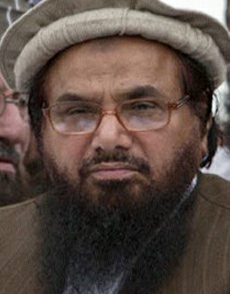
Hafiz Saeed
Founder and amir
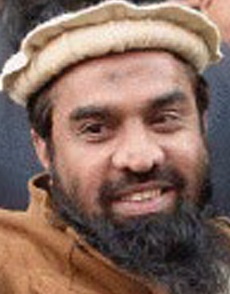
Zaki-ur Rehman Lakhvi
Supreme commander of
Kashmir; operational
commander
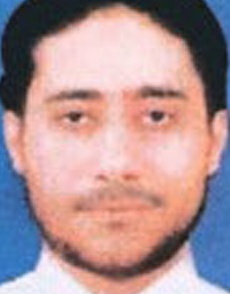
Sajid Mir
Commander of
external operations
The relationship between LeT and the Pakistani Inter-Services Intelligence (ISI)
The relationship between LeTand the Pakistani Inter-Services Intelligence (ISI) is complex and has been subject to various reports and allegations.
According to various sources, including reports from the United States and India, LeT has historically had ties with the ISI, which is Pakistan’s premier intelligence agency. The ISI has been accused of providing support and shelter to LeT, allowing the group to operate from Pakistan.
However, the extent and nature of this relationship have been disputed, and Pakistan has denied any direct involvement with LeT. Some reports suggest that while the ISI may have previously supported LeT, the relationship has become more complicated in recent years, particularly following international pressure and sanctions against LeT and its leaders.
References:
https://www.dni.gov/nctc/terrorist_groups/lashkar_e_tayyiba.html
https://en.wikepedia.org/wiki/Lashkar-e-Taiba
https://www.dni.gov/nect/groups/lt.html
*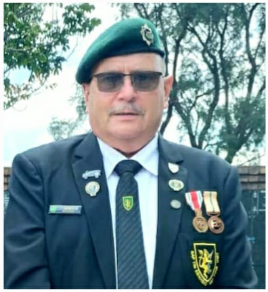
Wolfgang Witschas is a former member of the South African Police (SAP 1976 – 1981)(Uniform & Detective Branch), a member of the National Intelligence Service (NIS 1981 -1994), National Intelligence Agency (NIA 1995 – 2008), and the State Security Agency (SSA Domestic Branch 2008 – 2016).
